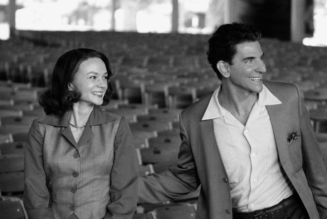
Yuja Wang’s latest recital at the Festival Hall was a dazzling, at times beguiling affair, carefully structured and executed with her customary flamboyance, glamour and elegance. Chopin’s four Ballades formed the second half of the programme, but before the interval came works from around 1950: Samuel Barber’s Piano Sonata in E Flat Minor, and a selection of Shostakovich’s Preludes and Fugues.
Barber’s Sonata is a stark work, dissonant to the point of atonality and strikingly edgy, from a composer sometimes considered, by no means accurately, to be essentially post-Romantic. Wang’s performance was a thing of contrasts, as fierce aggression (the opening was very hard-edged) jostled with the dark, weighty lyricism of the slow movement and the spectral filigree of the brief, oddly aphoristic scherzo. The strenuous fugal finale, flung out with almost devil-may-care bravado, formed an effective link to the Shostakovich preludes and fugues, which followed with barely a break. Even in extracts, the emotional range is uncommonly wide, embracing everything from knowing urbanity (the brilliantly sardonic F Sharp Minor Prelude, in particular) to the clarity and timelessness of Bach, on whose work they were modelled. Wang probed their subtleties and ironies with wonderfully understated virtuosity.
Chopin’s Ballades, meanwhile, were never written as a set nor intended for performance together, though nowadays they are frequently presented as such. Wang dispensed with the usual chronological approach, beginning with the Ballade in F Major and placing the G Minor third, so the sequence effectively opened in a mood of almost pastoral calm and ended with the turbulence of the Fourth Ballade’s coda. They really were most wonderfully done. Technical brilliance was balanced by finesse and great depth of feeling throughout, offsetting delicacy with fierce intensity, everything superbly controlled yet suggesting emotional spontaneity and freedom.
When they were over, her typically generous selection of encores began, including No VI of Boulez’s 12 Notations, and Samuil Feinberg’s transcription of the scherzo from Tchaikovsky’s Pathétique, taken at breakneck speed and jaw-dropping in its dexterity.








